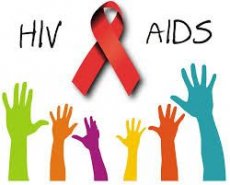Medical expert of the article
New publications
WHO has proposed new guidelines to help reduce the spread of HIV infection among certain populations
Last reviewed: 02.07.2025

All iLive content is medically reviewed or fact checked to ensure as much factual accuracy as possible.
We have strict sourcing guidelines and only link to reputable media sites, academic research institutions and, whenever possible, medically peer reviewed studies. Note that the numbers in parentheses ([1], [2], etc.) are clickable links to these studies.
If you feel that any of our content is inaccurate, out-of-date, or otherwise questionable, please select it and press Ctrl + Enter.

The World Health Organization noted that if it is impossible to carry out the necessary measures for the prevention and treatment of the category of citizens who belong to the risk group (homosexuals, prisoners, drug addicts, prostitutes, transsexuals), then global progress in the fight against AIDS will be under threat.
People at risk are at greater risk of becoming infected with HIV, but they are also less likely to have access to the necessary HIV prevention, diagnosis and treatment services.
In some countries, these categories of people are outside the national AIDS program, mainly due to laws.
On the eve of the International AIDS Conference, which took place on July 20 in Australia, WHO presented a publication that contains key principles for prevention, testing and treatment of people at risk.
In the new toolkit, WHO offers countries a range of actions to help reduce the number of new infections and expand access to diagnosis and treatment for those at risk.
WHO offers a large number of clinical guidelines, but their implementation will require a change in the legal environment, as the laws of some countries prevent some groups of the population from accessing such services.
WHO has for the first time recommended that homosexuals not only use condoms to prevent HIV infection, but also consider taking antiretroviral drugs. This measure arose on the basis that homosexuals continue to have the highest rates of HIV infection, regardless of where they live.
It is estimated that HIV prevention among homosexuals at the primary level will help reduce the spread of infection by 20%.
Studies have shown that prostitutes are 14 times more likely to become infected with HIV than other women, homosexuals are 19 times more likely, and transsexuals and drug addicts are 50 times more likely.
Experts note that citizens from the risk group are not isolated; prostitutes and their clients have families, children, and live normal lives. The inability to provide appropriate services to citizens who are at the highest risk of contracting HIV reduces global efforts to combat the epidemic to zero and puts the health and lives of other segments of the population at risk.
According to new data, improving HIV prevention methods is extremely necessary, since all methods used today show insufficient effectiveness, despite the fact that antiretroviral therapy has reduced mortality among HIV-infected people by 20%.
National measures aimed at combating the spread of HIV infection leave virtually no attention to the needs of people at risk. Only 70% of countries provide services for the prevention and diagnosis of HIV infection to homosexuals, 40% - to drug addicts, transsexuals are virtually ignored when planning methods for combating the spread of HIV infection. However, certain categories of people do not always have a real opportunity to receive the necessary assistance, despite legislative acts.
In some Eastern European countries, drug addicts account for almost half of all HIV-infected people, but only 1/3 have access to antiretroviral therapy.
In most countries, homosexuality, drug addiction, prostitution, and transsexualism are illegal, but where laws have been passed allowing certain categories of people to have access to HIV prevention and diagnostic services, there has been a reduction in the spread of infection and mortality among certain groups of the population, particularly among prostitutes and drug addicts.

